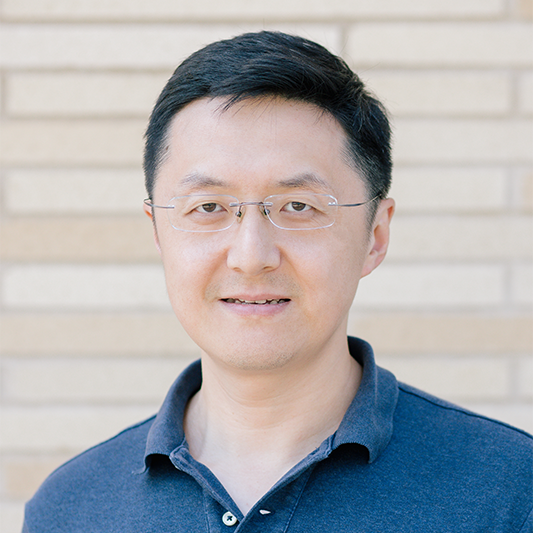
Siyang Zheng
Professor, Electrical and Computer Engineering
Biomedical Engineering
Bio
Dr. Siyang Zheng is a Professor at Carnegie Mellon University (CMU) in Departments of Biomedical Engineering and Electrical and Computer Engineering. Prior to his appointment at CMU, he was an Associate Professor of Biomedical Engineering at The Pennsylvania State University at University Park. He is the principal investigator of the Micro & Nano Integrated Biosystem (MINIBio) Laboratory at CMU. He graduated from Department of Biological Science and Biotechnology at Tsinghua University, and later received his Ph.D. in Electrical Engineering from California Institute of technology. Dr. Zheng’s main research theme is to develop micro/nano technologies for precision healthcare, at the interface of material, device and biomedicine. His recent work includes developing liquid biopsy technologies for non-invasive cancer diagnosis using nanomaterials and microdevices, innovative nanomaterials and biomaterials for cancer therapeutics, nanomaterial-integrated microdevices for virus discovery and diagnosis, new methods for protein/peptide enrichment and proteomics, DNA analysis, volatile odor detection, implantable pressure sensor, in vivo gene transfer devices, on-chip physiological or disease models, and fabrication of biodegradable and biocompatible polymers. He has published over 50 peer-reviewed journal papers. He also holds more than 15 patents and patent applications. Among other honors, he is the recipient of the NIH Director's New Innovator Award and the American Cancer Society’s Research Scholar Award.
Education
Ph.D., 2007
Electrical Engineering
California Institute of Technology
M.S., 2000
Electrical Engineering
THe Pennsylvania State University
B.S., 1996
Biological Sciences and Biotechnology
Tsinghua University, China
Research
Working at the interface of material, device and biomedicine, Professor Zheng’s research is highly interdisciplinary. His group has developed new nanomaterial constructs, methods for integrating nanomaterials into microdevices, new designs, principles and fabrication for microdevices, and enabling instruments and platforms in critical biomedical areas such as cancer and infectious diseases. A few examples are described as following. (1) During tumorigenesis and metastasis, tumor-derived materials, such as circulating tumor cells (CTCs) and extracellular vesicles (EVs, including exosomes), are released into the blood circulation. Blood assays to detect these cancer markers in blood are referred as liquid biopsy. Working with oncologists, his lab is developing several micro/nano technology platforms to isolate CTCs and EVs from body fluids of cancer patients. The ultimate goal is to translate the technology for cancer diagnosis and patient management. (2) High-performance point-of-care device and system for virus sample preparation and detection are highly desirable for newly emerging viruses that are often zoonotic. His group has been developing nanomaterial-integrated microdevices for virus discovery and diagnostics. (3) The intracellular delivery of bio-functional enzymes or therapeutic proteins through systemic administration is of great importance in therapeutic intervention of various diseases. However, current strategies face substantial challenges owing to various biological barriers. His lab has been working on biomimetic nanoparticles for systemic and intracellular delivery of proteins.
Keywords
- microfluidics/BioMEMS
- nano-biotechnology
- cancer diagnosis and treatment
- infectious diseases
- implantable devices